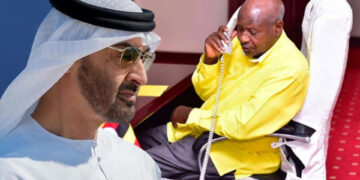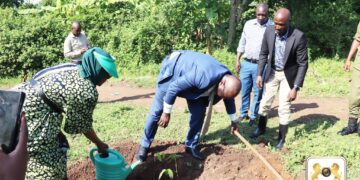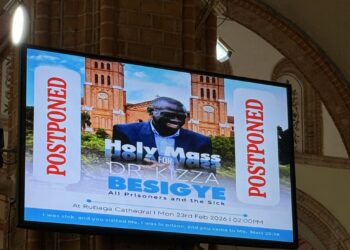OPINION
This 2nd of February, 2025, we join the rest of the world to commemorate World Wetlands Day. The UN General Assembly (UNGA) designated this day, and this year we’re fronting a theme: “Protecting Wetlands for Our Common Future.” This theme resonates deeply, especially as we reflect on how wetlands are often overlooked and misused in our communities.
Quite often, we have seen our friends, parents, and neighbors encroach on wetlands for farming, others cut them down for mulching, and some have shamelessly settled in these wetlands. It’s disheartening to witness such disregard for these vital ecosystems. Sometime back, I jokingly shared with a friend how everyone takes wetlands as free and idle land, and we laughed about it, but the reality is sobering. Wetlands are not just empty spaces, they are rich ecosystems that provide numerous benefits.
We must admit that these wetlands play a critical role in climate change mitigation, water purification, flood control, and biodiversity support. Their continued tampering is not only a disservice to nature but also to mankind as well in the long run. Protecting wetlands is essential for ensuring a sustainable future for our planet and ourselves. It’s time we recognize their value and take action to safeguard these precious resources for generations to come.
Below, I have highlighted a few steps among many that as environmental activists, responsible citizens and every concerned authorities could look at to help reduce and minimise the injustices practiced on wetlands all over the world.
Firstly, protecting existing wetlands from encroachment is essential. Authorities need to enforce strict regulations and take decisive action against those who violate these protections for settlement, farming, or recreational projects. This will deter potential encroachers and help maintain the integrity of these ecosystems.
Secondly, community engagement is key. Organizing sensitization workshops and training sessions can significantly raise awareness about the importance of wetlands. By educating people in communities and schools about the ecological benefits of wetlands and the consequences of their disturbance, we can foster a collective responsibility towards conservation.
Moreover, it’s vital that this message is not just a one-time event but an ongoing effort. Continuous campaigns and discussions about wetlands can keep the conversation alive and encourage everyone to contribute to their protection.
Let’s make this a rallying cry for the environment, emphasizing the urgent need for action and commitment to preserving our wetlands for future generations. Together, we can make a difference.
By Mary Blessing Ahairiirwe, the writer is a Volunteer at Women for Green Economy Movement Uganda.
Email: maryblessingahairiirwe@gmail.com








































